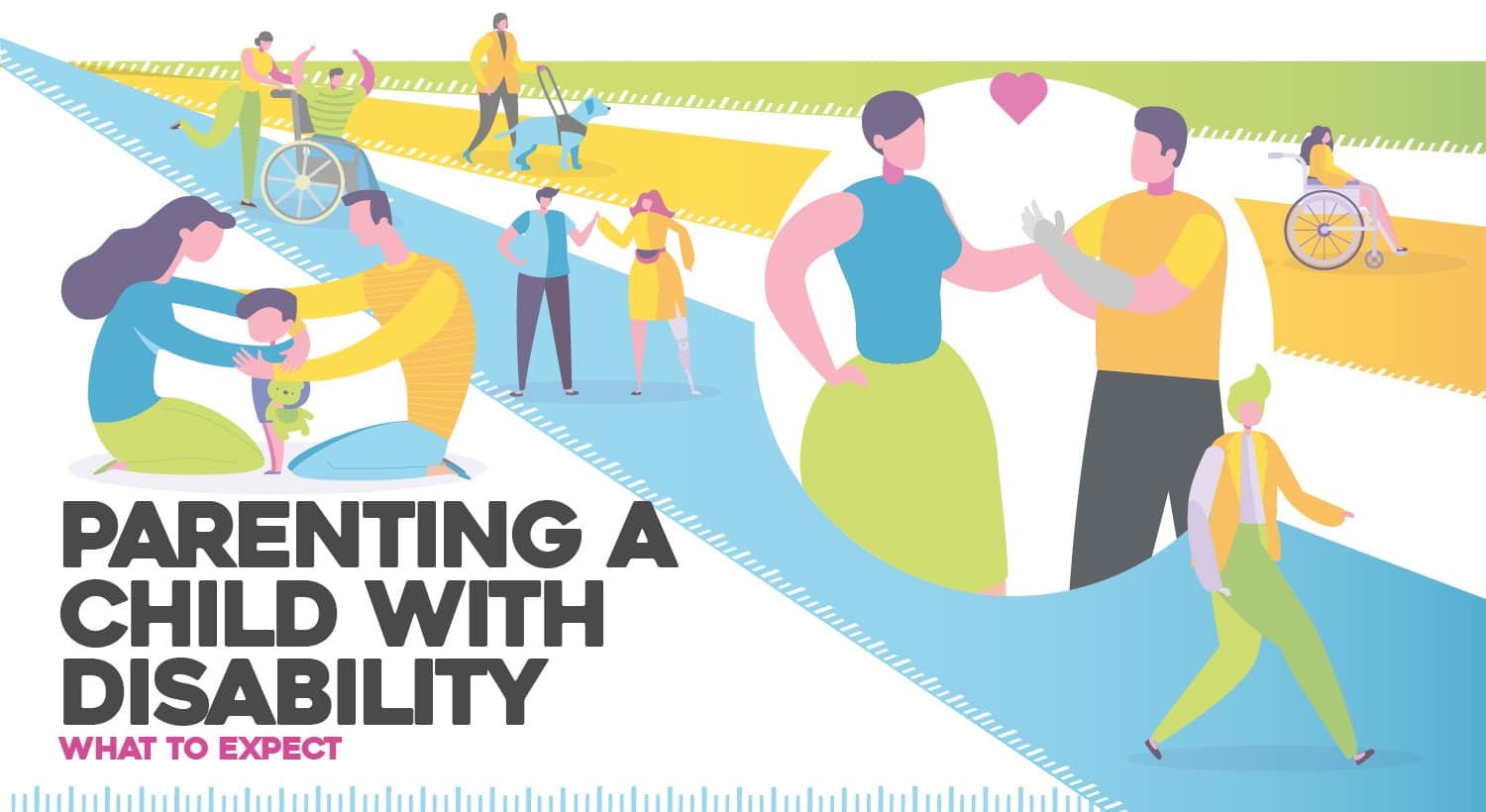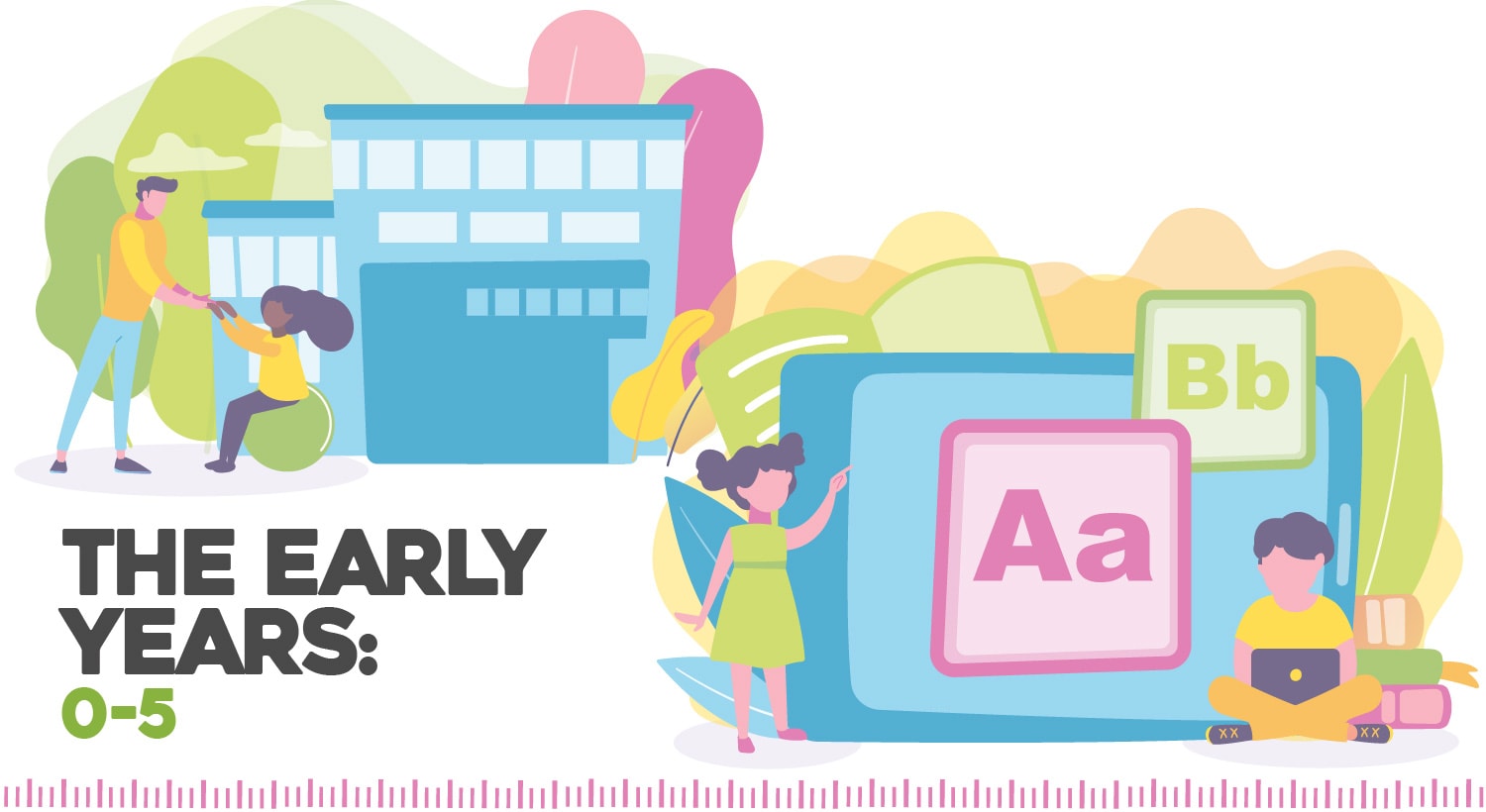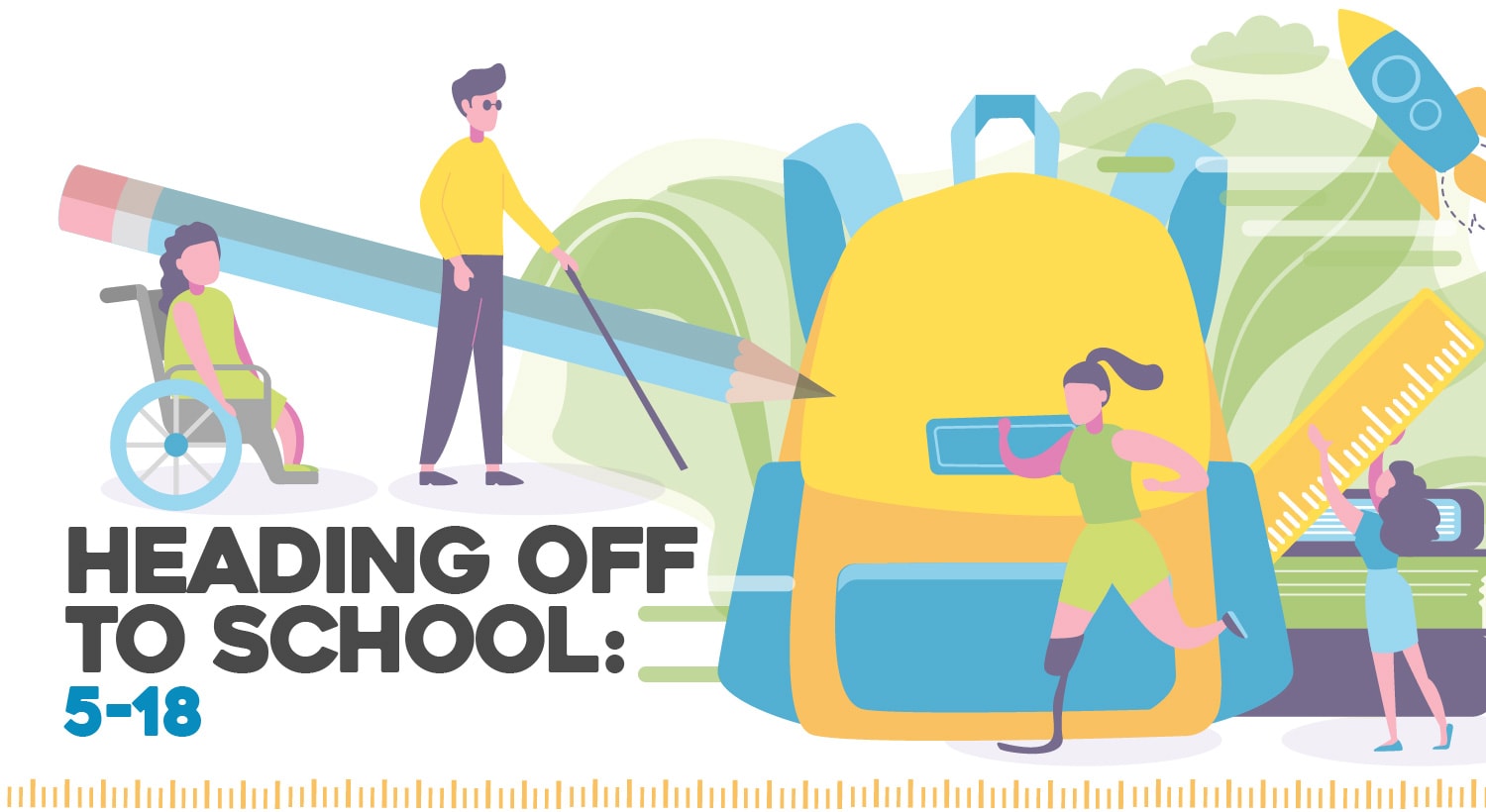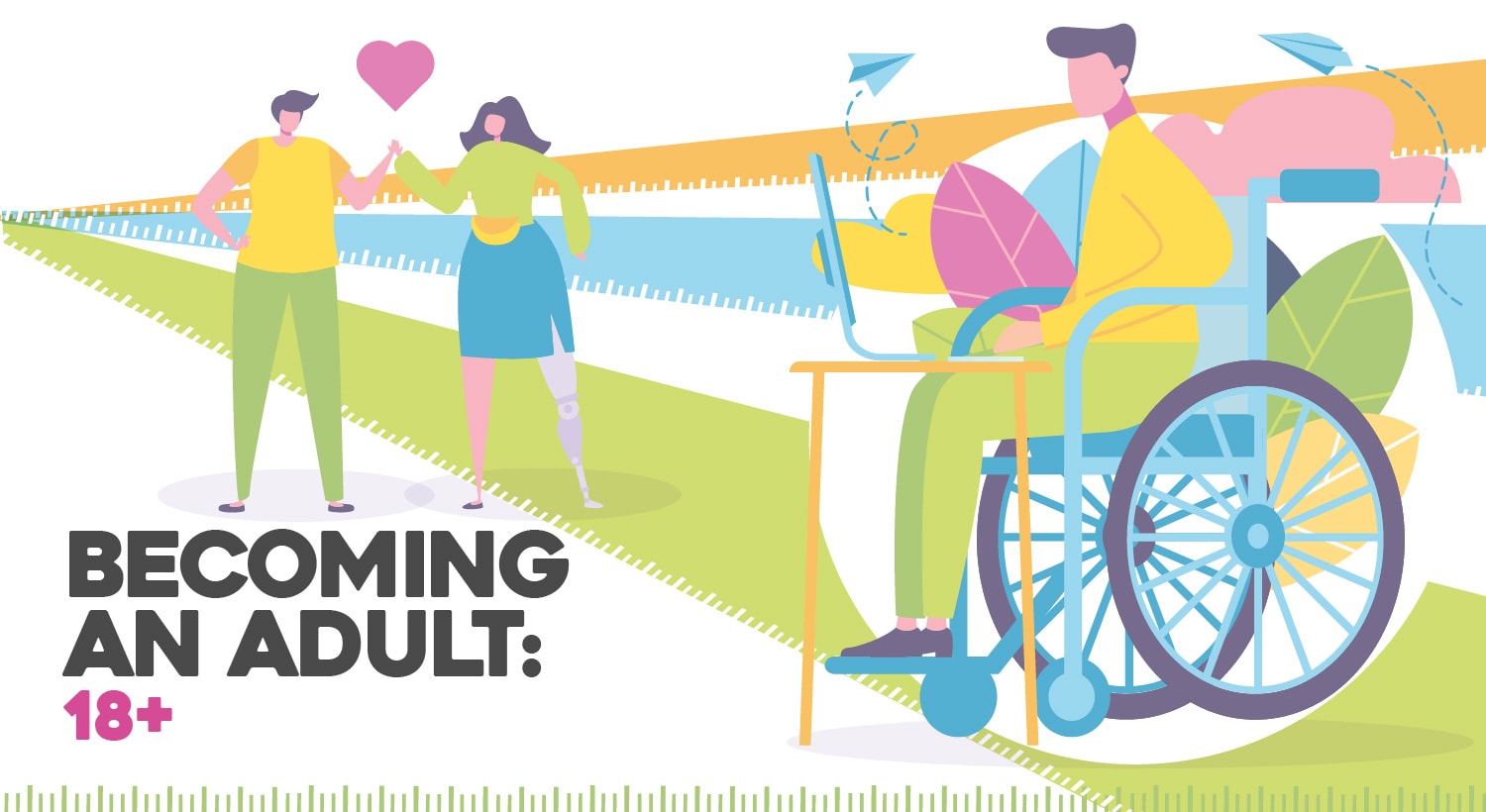
Parenting a child with disability: what to expect
Parents of children with disabilities face many tough questions throughout their journey. Feros Care offers some answers here.
Every parent knows the dread that comes with thinking about your child being sick or injured. It’s a tense knot that ties itself in your stomach and won’t release until you know your child is safe and well.
When you find out your child has a disability, it can feel like that knot is going to be there forever.
This doesn’t have to be the case, though.
Nobody is going to argue that parents of children with disabilities have a challenging journey ahead. There will be painful emotions to deal with, unique stresses that come with parenting a child with special needs, and many tough questions to ask – the first of which is often “why?”.
But on the other side of the guilt, anger and confusion, you can find hope and joy. And there are plenty of people who can help you do so – you don’t have to face the challenges alone.
To help you prepare for the journey ahead, we’ve created a timeline for parents of children with disabilities. Below, we discuss some of the universal questions that come up at each stage of parenting a child with special needs. While this list of questions isn’t exhaustive, it does serve as a helpful reminder that you’re not the first person to ask them, you’re not alone, and the upcoming challenges have been faced – and overcome – by a parent just like you.
The Early Years: 0-5
Learning your child has a disability affects the whole family – you, your partner, and any other siblings will have some new obstacles to face. While things will feel challenging (especially at first when you’re all still adjusting), parenting a child with special needs can also be a rewarding and bonding experience for families.
If you’ve just found out your child has a disability, you may be wondering some of the questions below.
What will my child’s quality of life be like?
One of the first questions you’ll have is what your child’s disability means for their quality of life. Which day-to-day tasks will they be able to do themselves? Which tasks will they need help with? What kind of special needs will you need to address for your child to live their best life?
To better understand your child’s disability, you can access information online, in books, and from medical professionals. The internet offers endless resources, from websites of official organisations such as Autism Spectrum Australia to Facebook groups such as AUTISM & ADHD Parents Support Group. These groups are great for finding information and getting emotional and practical support from people just like yourself.
Connecting with people in the same shoes as you is also a fantastic way to overcome feelings of loneliness. There are many welcoming communities you can join on your journey – you just have to look for them.
Will my child’s disability affect their development?
As parents, we get to watch our children grow and develop through the years. And while this process is never easy (puberty is a nightmare for everyone!), it can be particularly tough to see your child fall behind their peers.
Because, yes, some disabilities will inhibit or delay your child’s development, whether it be physically, socially, emotionally, intellectually, or any combination of these areas. However, some other disabilities won’t interfere with your child’s growth at all or only in a minor way.
Every situation – and every child – is unique. Speaking with a medical professional is the best way to understand how your child’s development may be impacted by their disability. By combining the guidance of your doctor with online research and advice from parents in similar circumstances, you can prepare yourself to handle your child’s growth and the challenges they face along the way.
What support is available?
You’re not on your own. There is support available – financial and otherwise – to help you and your family.
You can complete this eligibility checklist to determine whether you’re eligible for funding from the National Disability Insurance Scheme (NDIS).
Even if you’re not eligible, there are several other supports and services provided by the government for people with a disability.
How will I parent multiple children when one has a disability?
Parenting a child with special needs and other children can be a tricky balancing act. A child with disability usually requires extra care, so it’s perfectly normal to worry about your other children feeling neglected in comparison.
However, there are things you can do to avoid this. For example:
- Involve your other children in caring for your child with disability – this can be great for strengthening sibling bonds;
- Openly communicate to the whole family about when and why you’ll be spending extra time on your child with disability;
- Set specific times each week for doing activities with just your other child/children (share responsibilities with your partner or organise respite care to facilitate this if needed).
Siblings Australia offers some great resources and support for siblings of children and adults with a disability, including ways to connect with other siblings online or face-to-face. This is a fantastic way for siblings to talk to others who truly understand their experience.
How can I get help?
According to research by the Australian Institute of Health and Welfare (AIHW), around 53% of primary carers/parents of children with disability feel they need more support, particularly in relation to financial assistance and respite care.
What does this mean for you? You absolutely shouldn’t be ashamed of wanting and asking for help. Countless other parents in similar situations feel the same way.
Being a carer can be as exhausting as it is rewarding. Support services are available to give you a break to do your own thing, whether you’d like to catch up with friends or just read a good book – whatever activity works best for you when it comes to recharging your energy.
Heading Off to School: 5-18
Seeing a child off to their first day of school can be one of the most nerve-racking days of your life. This is even scarier when your child has a disability, but there are steps you can take to make it easier on you both.
How will my child do at school?
Plenty of parents of children with disabilities get anxiety about their child heading off to school on their own. Raising Children Network Australia provides some excellent advice to prepare your child and yourself for a smooth transition into starting school.
Children and Young People with Disability Australia (CYDA) recommends being as engaged as you can with your child’s schooling and being an advocate for your child by:
- Understanding your child’s and family’s rights and the duties and obligations of educational services under the law;
- Communicating expectations with teachers and other professionals working with children;
- Keeping good records of events like meetings with the school.
You can learn more about the importance of parent engagement here.
Will my child make friends?
It’s a question that’s in the back of every parent’s mind: will my child fit in?
While it can be harder to make friends at school when you’re different, there’s no reason why your child with disability can’t form friendships just like everybody else.
If you’d like some strategies to help your child, Verywell Family offers some great advice on how children with special needs can make friends with peers, including tips such as:
- Help them practise making friends with roleplay at home before school or an event;
- Teach them to smile at one new person (or more) every day;
- Teach them some conversation starters, such as asking how another student’s day is going or complimenting their work.
These small steps can help shy children overcome their fears and create positive relationships throughout their school years and beyond.
How can I ensure my child is developing as much as possible?
From occupational therapy and speech therapy to special education tutoring, there are many programs and services that can promote your child’s development and wellbeing.
Your child might be able to get funding for these programs from the Australian Government’s Better Start initiative.
What if I feel anxious to go out in public with my child?
Many parents of children with disabilities prefer the comfort and safety of their own home. But social outings are vital for your own wellbeing, and these also provide valuable real-world experiences for your child.
Sure, it’s common to experience some stress when out and about with unpredictable kids – but this isn’t isolated to children with special needs!
Let’s face it: every young child in a public setting has the potential to do something that draws attention at any moment. Recognising that this fear is universal can help you get through the front door more often.
Autism Parenting Magazine provides some steps you can take to prepare for a successful outing with your child.
Becoming an Adult: 18+
Depending on your child’s situation, they may be graduating high school with plans to enter the workforce, further their education, or follow other exciting prospects. So, what kind of new challenges does this present you with as a parent? Here are some of the questions you’ll find yourself pondering as your child crosses the threshold into adulthood.
Will my child get a job?
Many people with disabilities find casual, part-time, or full-time work suited to their skills and abilities.
Disability Employment Australia offers support for people with disabilities looking for work, making it easier to find and maintain employment in Australia.
You can also help your child land a job by:
- Helping them with their CV, cover letters, and job search;
- Identifying companies with a strong reputation for hiring and training workers with disabilities;
- Exploring how technology can help them succeed at work (e.g. using speech recognition software rather than typing);
- Roleplaying job interviews and workplace scenarios with them.
Will my child find love?
This is another one that all parents wonder, whether their child has special needs or not. You’re certainly not alone – every parent hopes their child will find love and have a family of their own. While this future can be harder to imagine when your child has a disability, a disability doesn’t make it impossible to find love.
There are several tips you can share with your child for finding love with a disability. These include:
- Learn to love yourself – special needs and all – before trying to love someone else;
- View your disability as something that makes you unique rather than undesirable;
- Don’t pursue a relationship with someone who immediately seems uncomfortable or impatient with your disability;
- Be honest and upfront about your disability when meeting someone or using dating apps.
Should I look after my child full-time when I’m retired?
Parents often feel responsible for their child’s care when they’re no longer working. You might even feel guilty for taking time off to pick up a hobby or socialise rather than resuming full-time care of your child.
However, at this stage in your life, looking after your own needs should be a top priority. In the Australian Institute of Family Studies paper Ageing Parent Carers of People with a Disability, it’s revealed that one-fifth to one-third of parent carers aged 65 years and older need assistance with core activities themselves.
If you feel overwhelmed by the responsibilities of being a parent and carer as you get older, it may be in the best interests of both you and your child to get some help. Being a carer doesn’t mean you can’t also enjoy your retirement and take a break when you need it.
Who will look after my child when I die?
Who will be there to offer the love and support you’ve provided your child their entire life when you’re no longer there to give it? This is a key concern for many parents of children with disabilities – and often for the children themselves.
The Australian Government Department of Social Services offers a great in-depth guide for planning for your child’s future, from choosing a power of attorney and setting up a trust, to passing on everything you’ve learned about the needs of your child.



